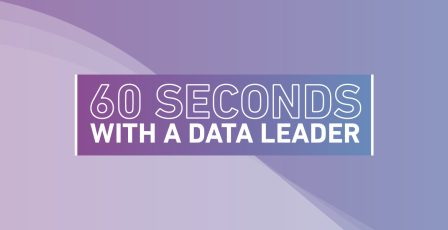Data governance in education: A strategic approach
Discover how effective data governance transforms education, ensuring regulatory compliance, improved student outcomes, and operational efficiency
Education is currently undergoing an unprecedented digital transformation. Educational institutions are increasingly leveraging digital tools to meet regulatory requirements, make data-driven decisions and improve student outcomes and experiences.
With this revolution has come a dramatic increase in the volumes of data which educational organisations are now required to handle. The education sector is now in pressing need of robust data governance frameworks. But why?
In this article we outline how data governance preserves the accuracy and integrity of educational and personal data. We’ll explore the data governance research we recently conducted and what this means for educational institutions and share our best practices for a robust data governance program.
Data silos and integration issues
Many educational institutions struggle with fragmented data systems, hindering comprehensive data analysis and integration. Our research found that 79% of higher educational institutions said they found it challenging to embed data governance into existing ways of working and core business processes.
Data silos can lead to inefficiencies and inconsistencies in data handling. But by implementing integrated data management systems and a robust governance program, institutions can break down silos and achieve a unified view of their data. Which in turn, facilitates cross department collaboration, better decision-making and enhances operational efficiency.
The role data governance plays in AI
As AI continues to be a priority for many industries, it is crucial to explore the impact of data governance on AI. The impacts of AI on data governance include improved data quality, automated access control and policy monitoring, enhanced forecasting of governance risks and support for governance planning, increased data security, and better data integration.
While education institutions explore AI implementation, our research found that 77% of our respondents view data governance as crucial when they look to take advantage of AI, and 73% agree that better governance is key to better AI outcomes. Consequently, institutions are increasingly investing in data governance to unlock AI’s full potential.
Ensuring consistent data quality
Variability in data accuracy and completeness can compromise educational outcomes and operational efficiency. 45% of our respondents from higher education institutions stated that poor data governance resulted in poor data quality and eroded trust in data.
Inconsistent data can lead to poor decision-making and ineffective resource allocation. Thus, establishing robust data quality frameworks can help maintain accurate and reliable data. Implementing regular data audits and validation checks ensures data integrity.
The benefits of data governance in higher education
Meeting regulatory requirements
Universities are required to report on student-level data to regulators, the Higher Education Statistics Agency (HESA). This requires robust student record management, and a well-understood data estate. Data governance helps set clear standards for data documentation and ensures there is data mapping clearly documented, for high data integrity. This includes ensuring that data is consistent across each record. It also helps establish ownership across multiple data sets in the organisation, for clear responsibility allocation and accountability.
Enhanced student outcomes
Accurate and timely access to student data enables better teaching strategies and personalised learning experiences. Indeed, 32% of our survey participants agreed that more reliable data can lead to better decision-making. Through higher-quality data, educators can better identify student needs with reliable data and tailor their approaches accordingly.
Competitive advantage
Approximately 30% of the participants we surveyed also stated that a compelling benefit of data governance is its ability to deliver/offer a competitive advantage compared to other higher educational institutions that do not utilise data governance.
Operational efficiency & cost savings
Standardised data practices reduce administrative overhead and improve resource allocation. Efficient data management leads to better financial planning and budgeting, which can significantly lower operational costs.
Best practices for data governance in education
Firstly, work to engage all stakeholders in the importance of data governance and establish your key policies early on. Involve IT staff, educators, and administrators in data governance initiatives to ensure policies are practical and universally applied. You should also establish a data governance committee to oversee policy implementation and management.
After establishing the different stakeholders who need to be involved, implement ongoing training programmes to ensure all staff understand and adhere to data governance policies. Conduct regular workshops and provide resources to keep staff updated on best practices and regulatory changes. There are many resources to help you get started such as our Data Governance guide.
Then explore data governance platforms such as Experian’s Aperture Data Governance. Investing in high-quality tooling and working with experienced partners can enhance data quality and operational efficiency. Our research showed leaders struggled to know what to prioritise when investing in their data governance journey. We’re here to help and can talk through your challenges and what you’re trying to achieve.
How can we help?
Our Aperture Governance Studio is a highly intuitive data governance solution suitable for all industries. It’s quick and easy to implement, providing clarity and insight into the Higher Education sector. Featuring a simple user-friendly interface, it makes data comprehensible to users at all levels, regardless of their technical expertise.
Connect with our data governance expert to see ow effective data governance transforms education, ensuring regulatory compliance, improved student outcomes, and operational efficiency.
Get in touch
Learn how our data governance solution can be beneficial and tailored for the higher education sector.
Let's talk








